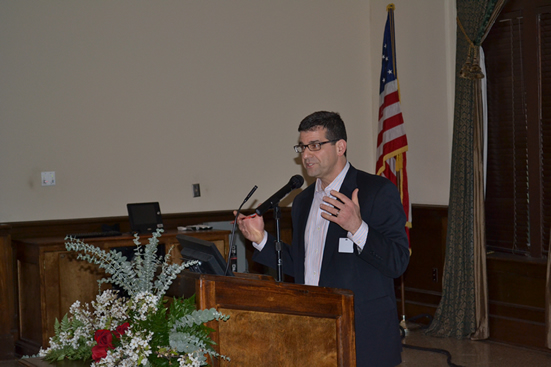

The Mississippi Delta is a region of persistent income inequality and pervasive intergenerational poverty. Several counties have sustained a poverty rate of 20 percent or higher for more than five decades. The Center for Community and Economic Development at Delta State University engages in development, teaching, outreach, and research programs that improve and enhance the quality of life in the Mississippi Delta region and advances strategies to use university resources to address poverty in the region.
Inspired by the work of Ray Boshara, senior advisor at the Federal Reserve Bank of St. Louis, leaders at the CCED decided to incorporate asset-building into the incisive poverty reduction strategies employed by the Center. Building assets among the poor is a promising avenue for breaking the cycle of intergenerational poverty in the Mississippi Delta and for creating economic advantages for low-income families. In recognition of this, “Asset Building among Low Income Families” has become the signature undertaking for the CCED for the next three years. The CCED embraces the asset-building model, particularly strategies that enable low-income families to build personal financial wealth through savings and investments.
The CCED’s broader vision addresses wealth disparity in the Mississippi Delta by mobilizing community, regional and state organizations to engage aggressively in asset-building activities that stabilize low-income families and improve the quality of life for residents of the Mississippi Delta.
Current programs are geared toward inspiring asset-building early in life (among children) and providing financial education and individual development accounts (IDAs) for adults. The Mississippi College Savings Account (CSA) program, sponsored and funded by the Kellogg Foundation, promotes, educates, and expands opportunities for students from underserved families by allowing them to start educational savings accounts in local banks or credit unions.
Program Leader Kisha Butler recently noted: “We hope to raise funds to continue the program beyond the preliminary phase and establish more CSA sites statewide.” Hope Credit Union and Southern Bancorp Bank currently house children’s accounts for this project.
Another asset-building activity at the CCED is the Developing Personal Wealth program which provides financial education to under-banked and underserved adults. Project director Pamela Forrest recruits and assists low-income individuals in completing Federal Deposit Insurance Corporation’s Money Smart Adult Financial curriculum. Money Smart graduates are guided to a path of practical money management, and are assisted with matching IDA funds for purposes of homeownership, education, or business capitalization.
The CCED’s approach to asset accumulation in the Mississippi Delta is encompassing and cooperative, as it seeks support and builds reciprocal partnerships with the Southern Regional Asset-Building Coalition (SRABC), the Federal Reserve Bank of St Louis, Memphis Branch, the Center for Economic Education and Research (CEER) at DSU, the Institute for Community-Based Research (ICBR), at the Center for Population Studies at the University of Mississippi and other key strategic partners.
To launch this new development focus, the Federal Reserve Bank of St Louis, Memphis branch hosted an Asset Building Symposium on March 7, 2012 at Delta State University. The conference informed a diverse group of CCED stakeholders, policy makers and community development practitioners on sound anti-poverty measures for low-income communities including ownership and household asset building strategies for the poor. The overall emphasis of the symposium was “strengthening the balance sheets of Mississippi families for economic growth.”
In his key note address Boshara proposed addressing intergenerational poverty by promoting strategies to help families manage their balance sheets. He noted that families with healthy balance sheets spend, save and invest more and thus contribute to economic growth. Boshara supports the CCED/CFED Mississippi College Savings Account Program and believes that it is imperative to start building assets earlier in life. He noted that children from families with of low saving and low income are less likely to achieve upward mobility than those who come from families who accumulate assets and save. Amir Shir a consultant with the Assets for Independence Program backed Boshara and stated that children with savings in their own name are seven times more likely to attend college shortly after graduating high school than those without an account. Account ownership appears to matter more than the amount saved.
A special session at the symposium brought together a diverse set of community development practitioners, bankers and researchers to discuss innovative asset-building strategies for the Mississippi Delta. This session provided the CCED and its partners with facts, ideas and strategies for effectively implementing Asset Building programs in the Mississippi Delta communities with consideration for contextual social and cultural factors. The session speakers also isolated impediments to asset building in the Mississippi Delta and offered a practical and progressive policy framework to overcome them. In his concluding remarks, Ray Boshara argued that even in an era of financial austerity, asset building and saving are still the right ideas. For economic mobility, people need to save more and the CCED can help Mississippi Delta families by designing and implementing effective projects that use creative ways to build assets.
For more information about the CCED’s asset building programs, contact Dr. Paulette Meikle-Yaw, at: pmeikleyaw@deltastate.edu or 662-846-4066. Or, Dr. Leslie Green-Pimentel, at lgreenpimentel@deltastate.edu or 662-846-4358.

